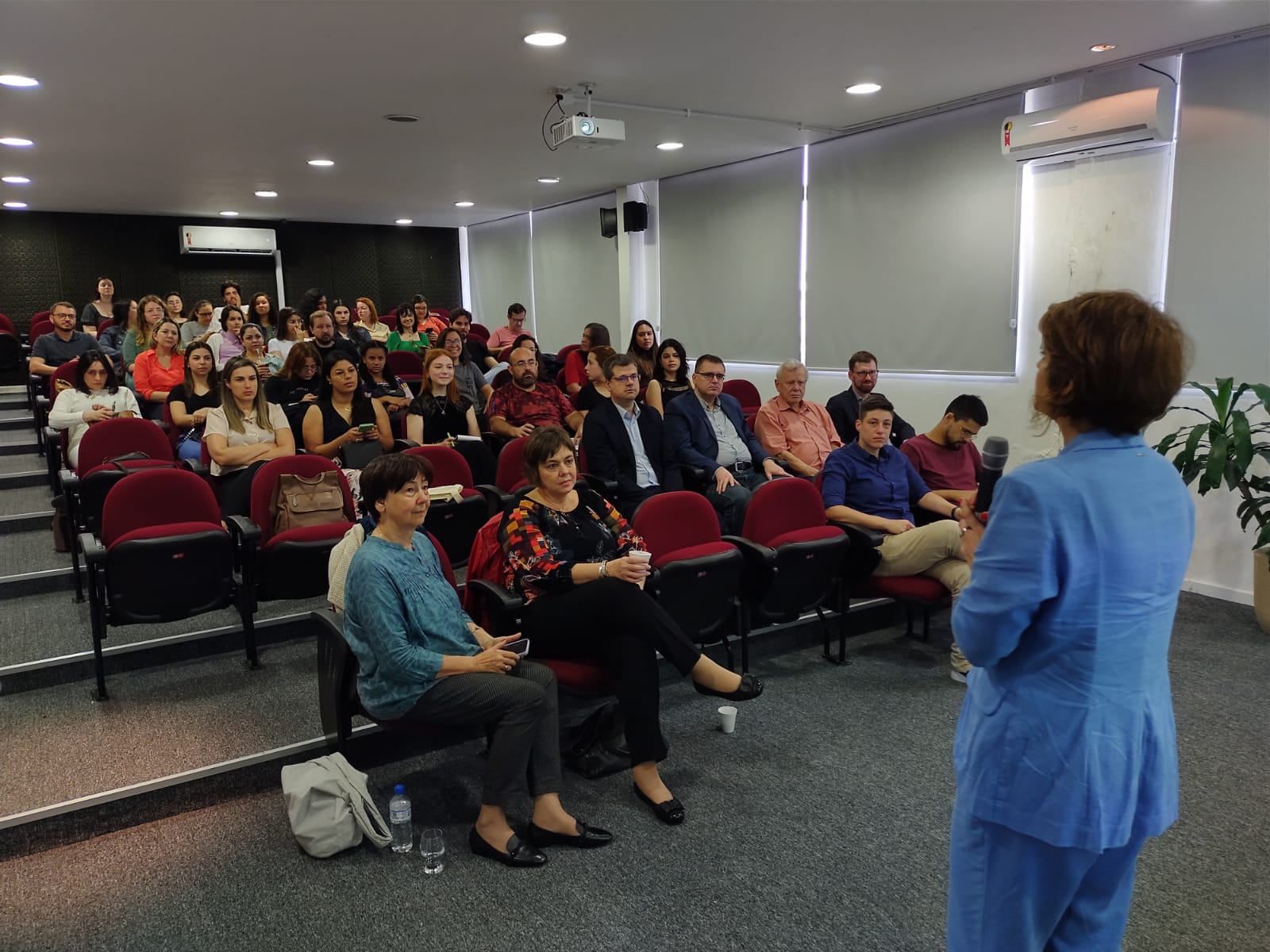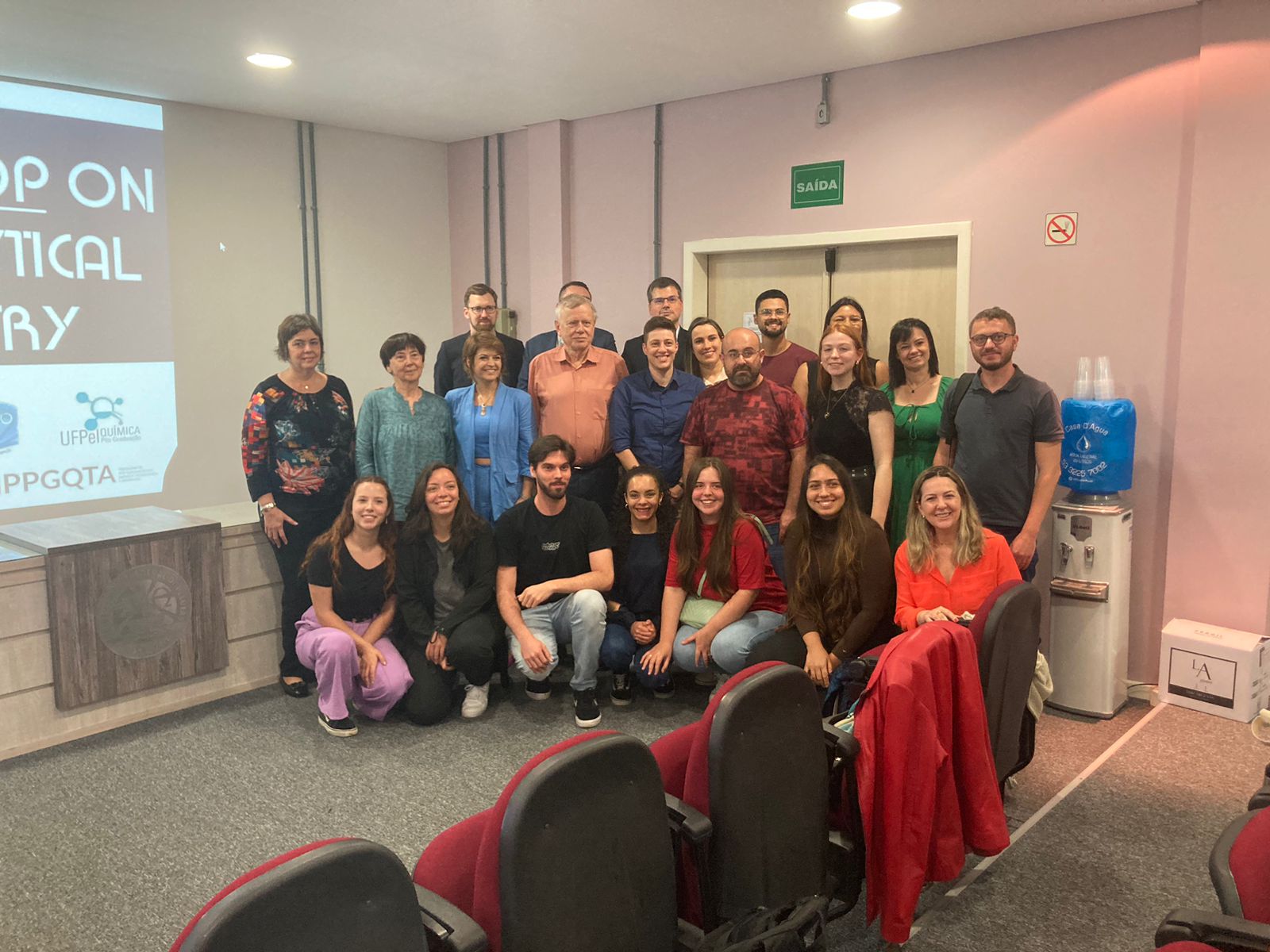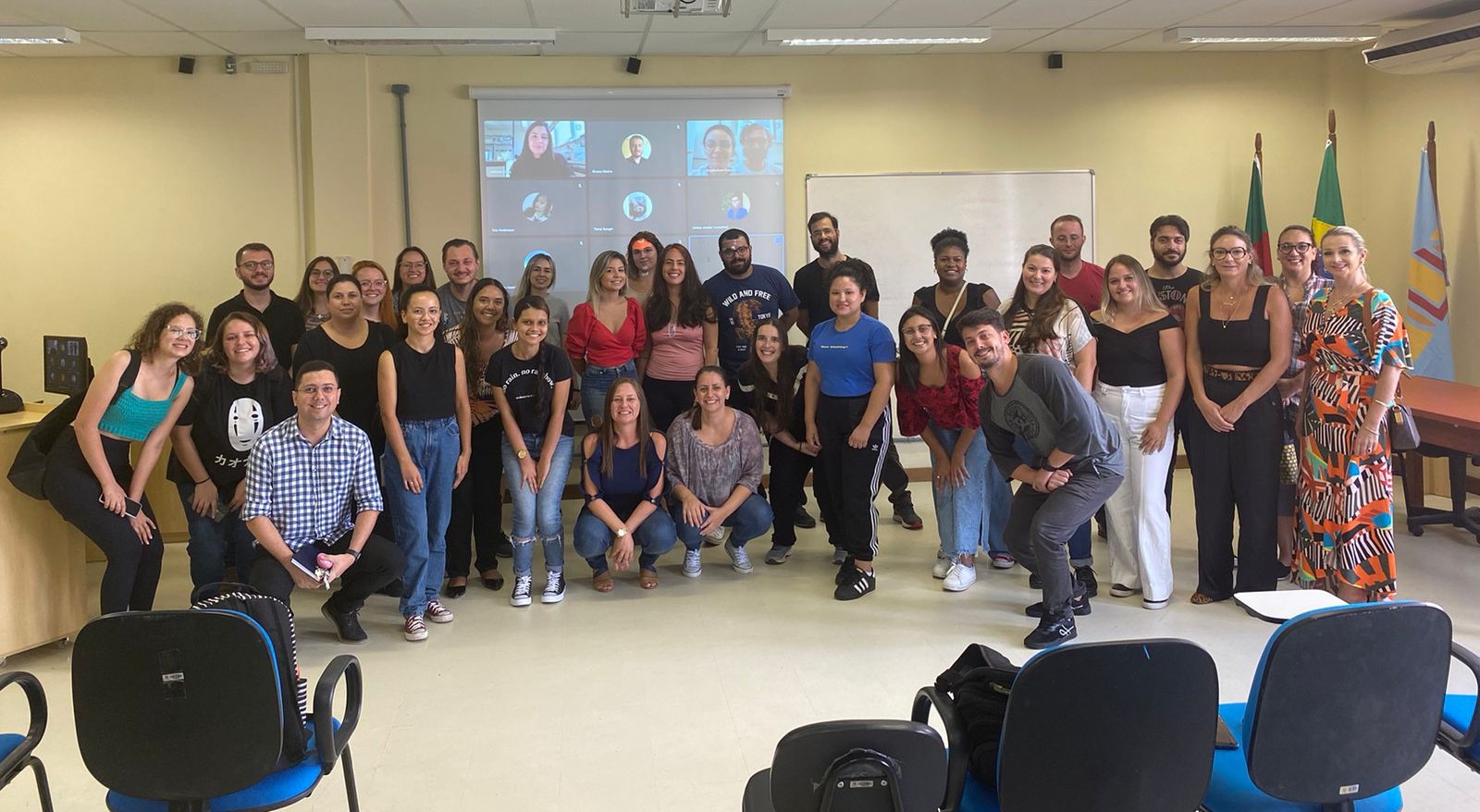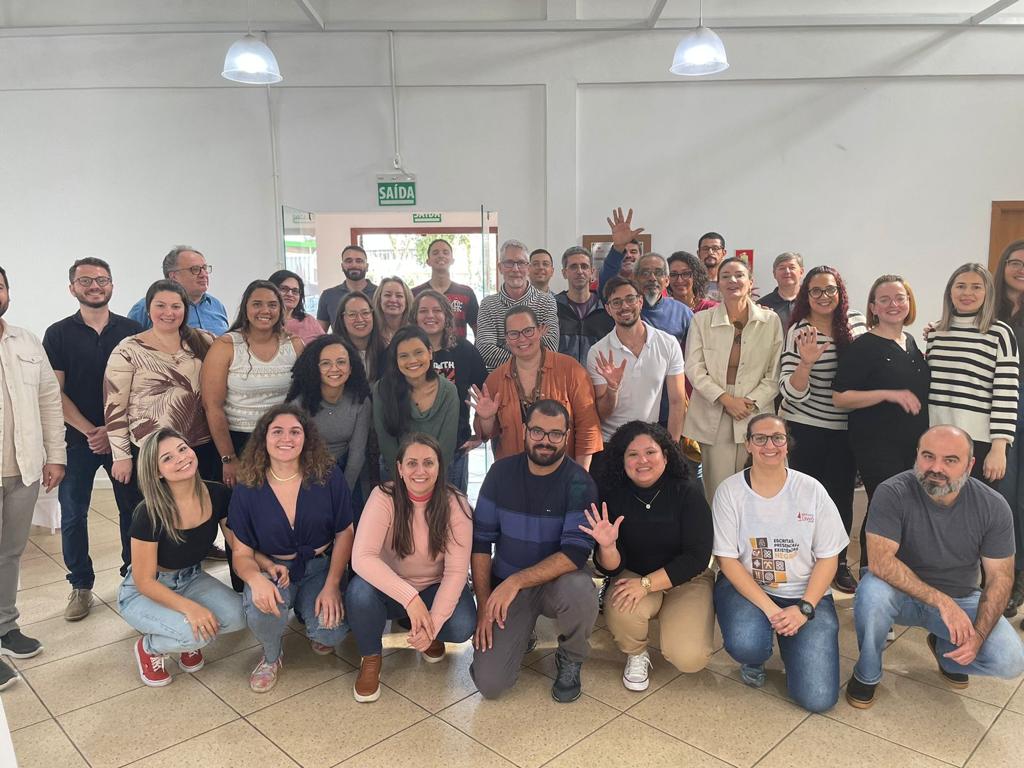A segunda edição do Workshop on Bioanalytical Chemistry ocorreu no dia 02 de Dezembro e contou com a participação de pesquisadores internacionais da Polônia, Alemanha, Inglaterra e República Tcheca. O evento contou com palestras sobre temas relacionados às tendências na área de Química Bioanalítica com foco na determinação elementar e especiação química. O Workshop foi coordenado pela Profa. Márcia Foster Mesco e vinculado aos Programas de Pós-Graduação em Química (PPGQ-UFPel), Programa de Pós-Graduação em Bioquímica e Bioprospecção (PPGBio-UFPel), Programa de Pós-Graduação em Ciência e Tecnologia de Alimentos (PPGCTA-UFPel) e Programa de Pós-Graduação em Química Tecnológica e Ambiental (PPGQTA-FURG) e Programa de Pós-Graduação em Química (PPGQ-UFSM).
Programação do evento
09h00 - Abertura e boas-vindas
Profa. Márcia Foster Mesko - Universidade Federal de Pelotas, Pelotas, Brasil.
09h10 - Palestra 01 – SPECIATION: Interesting cases and non-routine procedures.
09h35 - Palestra 02 – Development of discrete element and isotope analytical methods for sustainable transformation of society.
Palestrante convidado: Dr. Björn Mermann – Federal Institute of Hidrology, Alemanha.
10h00 - Palestra 03 – Novel printing strategies to underpin quantitative imaging.
10h25 – Coffee-break
10h40 - Palestra 04 – Dielectric barrier discharge (DBD) plasmas for trace element analysis by atomic spectrometry: from their development to applications and mechanistic studies.
Palestrante convidado: Dr. Jan Kratzer - Czech Academy of Sciences, República Tcheca.
11h05 - Palestra 05 – Hydride generation atomic fluorescence spectrometry – searching for minimum detection limits.
Palestrante convidado: Dr. Jirí Dedina – Czech Academy of Sciences, República Tcheca.
11h30 - Palestra 06 – Establishing laser-induced breakdown spectroscopy as a vital tool for biological and clinical applications.
Palestrante convidado: Dr. Josef Kaiser – Brno University of Technology, República Tcheca.





